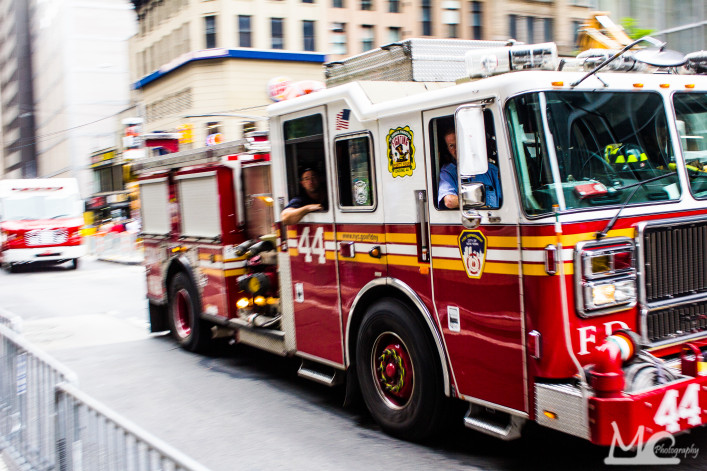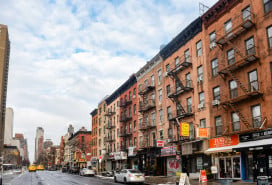After a fire in a cluttered Harlem apartment, how to protect yourself

A fire in Harlem last week seriously damaged at least six apartments and displaced as many as 24 people from the building, though no one was hurt, DNAinfo reports. The incident comes on the heels of a Williamsburg high-rise fire this summer that killed a veteran firefighter. What these two incidents have in common: both reportedly started in dangerously packed-to-the-gills apartments, often known as "Collyers' Mansions," after two notorious brothers who hoarded in their brownstone in the 1940s.
It's one of everyone's worst apartment nightmares, to be sure. So what do you do if someone is hoarding in your building?
If you suspect a neighbor may be a hoarder (telltale signs include blocked up windows, infrequent removal of trash, and rifling through other building residents' trash or mail), it may be wisest to go to your landlord, property manager or board with your concerns first. They have the authority to call for an inspection of the apartment, and are also able to issue an order for your neighbor to clear out of their apartment.
You can take your concerns to the city, too, if necessary. Call 311, and you'll be pointed to Adult Protective Services (which may be able to assist your neighbor if they're mentally or physically impaired), or the FDNY, which can issue a court summons to have the apartment cleared.
Failing that, it also helps to know your backup plan. If your apartment is damaged in a fire—or if you're just vacated while repairs are made to the building—standard renters, co-op, and condo insurance will help cover the cost of your temporary accommodations. It varies from policy to policy, but you'll generally get about two to four weeks worth of help, for 20 percent of your "insured contents amount" in a rental, and 50 percent in a co-op or condo. (This is even true if you refuse city-offered accommodations.)
And while you're at it? Don't forget to do your due diligence to make sure you're not the one putting the neighbors at risk.
Related:
Fire Alert: Is your electrical outlet a hazard? Find out
What's really scary about New Yorkers and fire safety? Not a nest smoke alarm
Spot the hoarder next door—before an emergency
How to kick a naked, knife-throwing neighbor out of a condo building
8 questions you must ask before buying renters' insurance (sponsored)
A pipe leaks and damages a neighbor's co-op. Who pays?
When disaster strikes, your apartment insurance can help with temporary housing (sponsored)



























